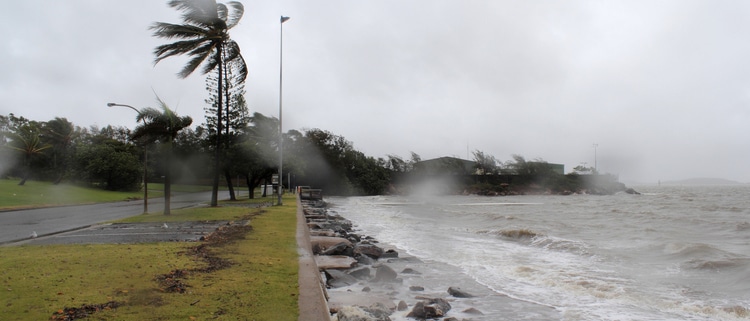Hurricane evacuations, even for native Floridians, are chaotic times, and in times like these, a sense of panic and heightened urgency can cause people to act negligently or make reckless decisions.
If someone else’s negligence caused you injury during a storm evacuation, you do have legal options, including the right to file a lawsuit for damages against the at-fault party (even if it’s the state government or a government agency). However, before you initiate legal action, there are a few things our West Palm Beach personal injury lawyer wants you to know about recent changes to Florida personal injury law that could affect your claim.
Liability in hurricane evacuation accidents
Your legal options, including whether you are legally able to file a negligence claim, depend on the nature of the accident and who the at-fault party is. If it’s a government entity, then your case will be impacted by a recent change to Florida Law, House Bill 837, or the Civil Remedies Act. Government entities may have limited liability due to sovereign immunity laws, though certain claims may proceed if they fall within exceptions allowed under Florida law.
Let’s look at a couple of common injuries sustained in hurricane evacuations and the liability for each of these types of personal injury claims.
Car accidents
High traffic volume, panic over rising water and high winds, road closures, and shifting traffic patterns create conditions in which vehicle collisions are much more likely. Add in an emergency vehicle trying to save people to the mix, and there’s a good chance someone will get seriously injured.
Although poor conditions and inclement weather make driving more of a challenge, drivers are still expected to follow traffic laws, detours, and to take reasonable care for others on the road. If you’re in a collision, you could hold the at-fault driver liable for your injuries.
However, road conditions and a lack of clear direction from the municipality ordering an evacuation can also lead to conditions in which traffic accidents are much more likely. If a government agency fails to take reasonable steps during an evacuation, like managing traffic or issuing timely guidance, it may be held liable. However, sovereign immunity laws may limit or bar some claims, depending on the circumstances.
Injuries in evacuation shelters
Makeshift, crowded, and understaffed evacuation shelters also create conditions in which an injury or assault is likely to happen. Ceiling collapses and unsafe sleeping arrangements can cause serious injuries to evacuated Floridians. Inadequate supervision and a lack of law enforcement presence in shelters can be dangerous. Assaults, including sexual assault and physical battery, are more likely in makeshift shelters that lack proper supervision or regulation.
In some cases, you can file a personal injury lawsuit against a person who hurt you or your family because of malicious intent. And if a property owner or shelter operator fails to provide reasonable security measures to protect evacuees from foreseeable harm, they may be liable under a theory of negligent security.
Liability in a hurricane evacuation personal injury case can get complicated, and the limitations in Florida House Bill 837 may present additional hurdles for injury victims.
What is the new law in Florida for personal injury?
The goal of House Bill 837 was to streamline the Florida personal injury lawsuit system, but some of the changes, especially to Florida’s statute of limitations, have instead made recovery more challenging for many injury victims.
Some of the key changes that could impact your claim include:
- A shortened personal injury statute of limitations from four years to two years. While a two-year deadline from the accident date may seem long, dealing with misidentified defendants, insurance company delays, and ongoing medical needs can make the deadline sneak up on you.
- Change from a pure negligence system, in which a plaintiff could recover damages from the defendant even if they contributed more than 50% of the blame for it, to a modified comparative negligence system. Now, plaintiffs must demonstrate that they contributed less than 50% of the blame for the accident to recover compensation.
- Reduction of non-economic damages (pain and suffering, emotional trauma, loss of quality of life, etc.). In certain cases, like medical malpractice, non-economic damages are capped at $500,000. However, most general personal injury claims in Florida do not have a cap on non-economic damages unless specified by law. Punitive damages are generally capped at $500,000 or three times the compensatory damages, whichever is greater.
- Changes to how compensation for medical expenses is calculated. The new law limits awards to the amounts the plaintiff actually paid, not the billed amounts. If the medical provider accepts a discounted rate for services, you’ll only receive compensation for the reduced amount as part of their damages, not the original billed amount.
These changes aren’t insurmountable, but they do highlight the importance of working with an experienced personal injury attorney to handle your claim.
Understand how Florida’s new personal injury law affects your claim
Were you injured during a hurricane evacuation in Florida? Changes to Florida’s personal injury statute of limitations and compensation rules mean that acting quickly is more important than ever. IF your injuries were caused by unsafe road conditions, negligent shelter operators, or government mismanagement, you may be eligible to file a personal injury lawsuit under the new law.
At Lytal, Reiter, Smith, Ivey & Fronrath, our experienced personal injury attorneys can help you navigate the updated legal system and protect your right to fair compensation. Call us today at (561) 655-1990 or fill out our secure online contact form. Our law firm is committed to helping injury victims understand their rights and take timely legal action under the revised laws.


